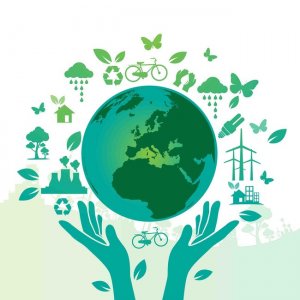Global Challenges: Uniting Humanity in the Pursuit of Solutions
Introduction
In an increasingly interconnected world, humanity faces a myriad of complex and interrelated challenges that transcend national borders. From climate change and poverty to pandemics and conflict, global challenges demand collective action and innovative solutions. In this blog, we explore some of the most pressing global challenges, their impact on humanity, and the importance of international cooperation in addressing these issues for a better future.
The Landscape of Global Challenges
Climate Change: The existential threat of climate change looms large, with rising temperatures, extreme weather events, and melting ice caps endangering ecosystems and human populations alike.
Poverty and Inequality: Billions of people continue to face poverty, lack of access to basic services, and income disparities, hampering human development and social stability.
Global Health Crises: The outbreak of pandemics, such as COVID-19, highlights the need for robust global health systems and preparedness to combat infectious diseases.
Biodiversity Loss: The loss of biodiversity threatens ecosystems, food security, and the delicate balance of life on Earth.
Armed Conflicts: Ongoing conflicts and geopolitical tensions result in humanitarian crises, displacement, and loss of lives.
Digital Divide: The digital divide between technologically advanced and underserved regions hinders access to education, information, and economic opportunities.

Impact of Global Challenges
Global challenges have far-reaching consequences:
Human Suffering: These challenges exacerbate human suffering, leading to displacement, hunger, and loss of life.
Economic Implications: Global challenges can disrupt economies, hamper development, and create financial instability.
Environmental Degradation: Climate change and biodiversity loss threaten the very foundation of life on Earth.
Social Unrest: Inequality and poverty can lead to social unrest, straining social cohesion.
The Need for International Cooperation
Addressing global challenges requires united efforts:
Collaborative Solutions: International cooperation fosters the exchange of ideas and resources to develop sustainable solutions.
Shared Responsibility: Global challenges demand shared responsibility among nations and stakeholders to effect change.
Knowledge Exchange: Collaboration facilitates the sharing of best practices and expertise.
Capacity Building: Developed nations can support capacity building in developing regions to address challenges effectively.
Paving the Way for a Better Future
Climate Action: Implementing measures to reduce greenhouse gas emissions and transition to renewable energy is vital.
Poverty Alleviation: Promoting equitable economic growth, access to education, and social safety nets can lift people out of poverty.
Global Health Security: Strengthening global health systems and cooperation enhances pandemic preparedness.
Conservation and Sustainability: Conservation efforts and sustainable practices protect biodiversity and the environment.
Conflict Resolution: Diplomatic efforts and dialogue are essential in resolving conflicts and promoting peace.
Conclusion
Global challenges are a call to action, demanding humanity's collective ingenuity, compassion, and determination. In facing these complex issues, we must transcend national boundaries, recognizing that the solutions lie in our interconnectedness and shared responsibility. By fostering international cooperation, promoting sustainable practices, and embracing innovation, we can pave the way for a better future. As we navigate the terrain of global challenges, let us remember that by standing united as a global community, we can transform adversity into opportunity, shaping a world where prosperity, equality, and environmental stewardship thrive. As we journey through the realms of global challenges, let us envision a future where humanity rises to meet the trials of today, forging a legacy of resilience, compassion, and progress for generations to come.

Comments
Post a Comment